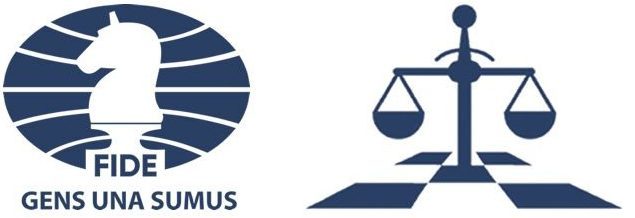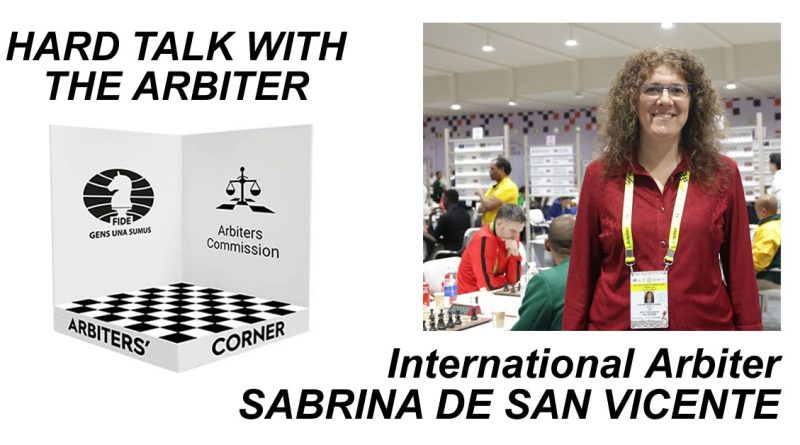HARD TALK WITH THE ARBITER – IA SABRINA DE SAN VICENTE
Hard Talk with the Arbiter continues. Year 2024 is opened by International Arbiter Sabrina de San Vicente, from Uruguay (America).
1. Walk me through, who is Sabrina de San Vicente?
Sabrina is 55 years old and lives in Montevideo, Uruguay. She is a mother of three: Federico, Veronica, and WFM Patricia de Leon, and she is also a grandmother. She is married to IM Bernardo Roselli.
She is an International Arbiter and FIDE Lecturer.
She participated in the last five Olympiads. In Istanbul 2012, Tromso 2014, and Baku 2016 she played for the Uruguayan team. In Batumi 2018 she was a Match Arbiter and in Chennai 2022 she served as a Deputy Chief Arbiter.
Furthermore, she acted as an arbiter in the World Cup, World for People with Disabilities, IMSA World Masters, World Youth, World Cadets, World Schools, World Teams, World Junior, Iberoamerican, six American Continentals, and three Panamerican Youth Championships among other events.
She has been a Member of the Qualification Commission since 2018, Councillor since 2020, and Chair since April 2022. She loves contributing and being in touch with the chess community, and her role in the Qualification Commission gives her a great opportunity to do so.
Her native language is Spanish, she speaks English and Portuguese, and she is trying to learn French.
As an arbiter, she enjoys being in any position at the chess tournaments: doing pairings, fair play checks, being chief, deputy chief, sector, or match arbiter. She doesn´t take it as work, if you find a job you enjoy doing, you will never have to work a day in your life.
2. You made this statement sometime in 2014 as a player ‘I feel like I know more and more every day. Daniel is teaching us a lot of strategy”. As an arbiter in 2023, do you feel like you know (learn) more and more every day?
We should never assume that we already know everything. Learning is a continuous process.
Education of Arbiters
Definitely yes.
IM Daniel Rivera was the captain of the Uruguayan Female Olympic team in Tromso. He is very enthusiastic and never stops teaching.
Dedicating myself completely to the task I perform has been a constant in my life. When I decide to do something, I always try to do my best, I put all my effort and passion, otherwise, better not to do it. As a player, I was very studious. The same applies to my career as an arbiter.
I am permanently studying the regulations and continuously learning, and I think it´s a must to be updated.
We should never assume that we already know everything. Learning is a continuous process. The more that I learn, the more I feel there is still to learn.
I consider that it is very useful for me to live the tournaments from different points of view. Being a player, organizer, working in different roles as arbiter, or even a mother of chess players, allows you to see the tournament from different angles, and you can learn from your colleagues by observing how they perform. That gives you a wide spectrum and you can feel the situations from different sides, you can see the tournament from other perspectives.
3. Tell us how you organize, plan, and prioritize your work as Chief Arbiter?
There are three different stages in the Chief Arbiter´s work for a tournament: before, during, and after the event. I put all my efforts into the first stage working closely with the organizer.
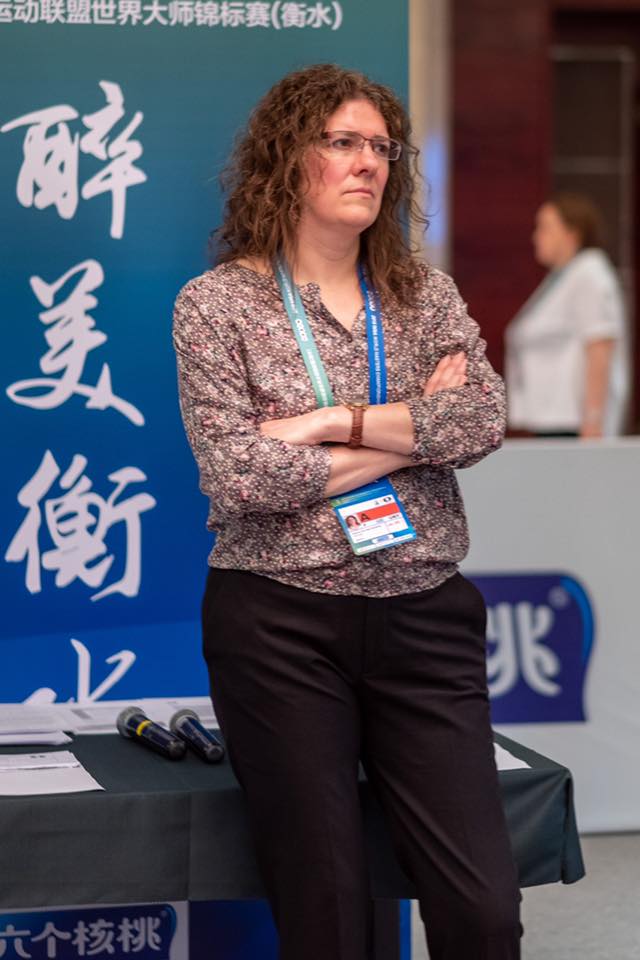
As soon as I am appointed, I start thinking about the tournament. I monitor in advance every detail for the proper development of the event. Everything predictable has to be thought out and organized, then, during the tournament, we can focus on the unforeseen events that may occur.
It´s better to help to prepare the regulations of the event if they have not been published yet, otherwise, read them and see if something is missing or needs clarification.
I try to visit the playing venue as soon as possible or at least, I request a map to start thinking about the distribution of the boards.
Once in the playing hall, I check everything: toilets, smoking area, etc, and the technical conditions (light, air‐conditioning, enough space for the players, etc).
I also double-check with the organizer if all the equipment and stocks are enough: chessboards, pieces, clocks, scoresheets, tables, chairs, etc.
When the list of arbiters is ready, I try to learn about them and decide which tasks will be assigned to each one depending on their preferences, the languages they speak, and their profiles.
The information has to be distributed to the arbiters team, and we organize a meeting to align the team and evacuate doubts.
During the tournament, I try to cooperate with the team where I observe help is needed.
It could be needed to re-arrange the team. I take care of the tournament schedule and comply with it.
The tournament does not finish when the last game finishes, the report is still missing. I produce norms for players and arbiters who deserve them without any delay. I don´t like to have pending tasks.
To remember interesting situations that occurred during the tournament, I always take note day by day of everything that happened that is worth mentioning. This helps me to prepare a report at the end with suggestions for the organizer to improve for future editions.
4. How would you handle it if as Chief Arbiter your team resisted a new idea that you have introduced?
It is important to listen to everybody, the team should express their agreement or disagreement with the proposals.
First of all, I would try to understand the reasons why they are not supporting the idea. In some cases, we have experienced colleagues in the team and there could be valid reasons.
If I still think the idea is good, I would suggest putting it into practice for a couple of rounds and see how it´s working.
The Chief Arbiter should be careful with innovations, the team may not understand the ideas and we could generate a problem from an easy-to-solve issue. The arbiters should work with pleasure in a comfortable environment.
The arbiters should work with pleasure in a comfortable environment.
Sabrina de San Vicente
5. Describe your approach techniques as a Chief Arbiter/Arbiter to facilitate communication between two players who speak different languages?
Communication is one of the most important difficulties that we have as a society. People who cannot make themselves understood feel very unprotected. This is very important to keep in mind. For this reason, we must find communication paths to be able to listen to the players.
I can feel the happiness of Latin American players when they see my face in a tournament on the other side of the world. It gives them peace of mind to know that if they need to express themselves in their language they will be understood, it makes them feel safe.
If they speak languages that are far from my understanding, first of all, I would look for another colleague arbiter who understands the language. If not available, technology could help us to establish a communication channel using a translator on the computer.
The situation becomes more difficult when we are speaking about blind players. When assistants are not able to announce the moves in a language that the player can understand, it could be even worse, as happened in Lublin in World for People with Disabilities. And when the time control includes two periods, they don´t know in which move they are because they are not able to record the moves and they need to ask how many moves were played. Depending on the visual impairment level, we solved case by case with different strategies: having the assistant make the moves on the blind player´s board, the assistant writing the move number with big numbers on a piece of paper, or the player bringing an abacus. Assistants should have at least a minimum level of chess and be able to reproduce and record the moves. The exemplary behavior of the players in this event must be highlighted, they made the task easy.
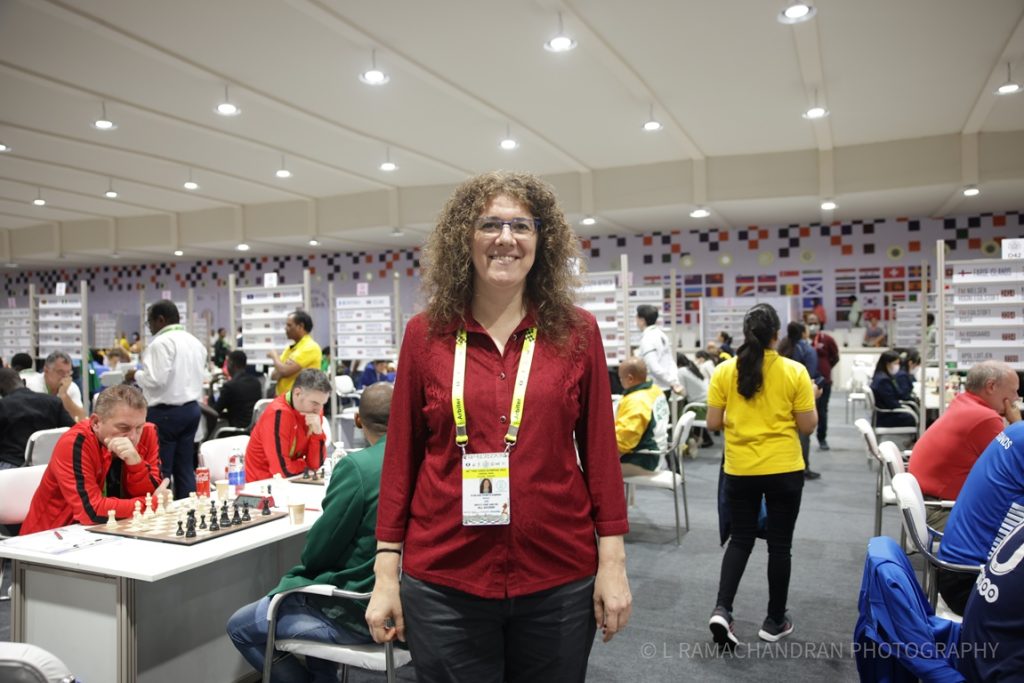
6. What would you do if you saw a player intentionally breaking a rule to gain an advantage? Give us an example if you had such an experience.
We must be inflexible with this. If a bad intention can be proven, the sanction must be more severe.
Fortunately, I had never had such an experience.
7. Share an experience you had in dealing with a difficult player and how you handled the situation.
As I said earlier, I was a player, and I believe that helps me a lot because it is easier to empathize with the players, you can feel the situations from their perspective.
I haven’t had the opportunity to deal with very problematic players. The most common problem is that they want to talk between them during the rounds. I conducted private talks outside of the round to explain to them the necessity of giving guarantees to their opponents that they are playing by themselves and without any external help.
Sometimes parents are more problematic than players. They want to be next to their children and they don´t understand that their children need to think in peace without their presence.
8. Share an experience when you applied new technology or information as a Chief Arbiter. How did you handle it?
Although I am comfortable with technology, I prefer to have the players convinced by themselves that a three-fold repetition has occurred when a claim is received. I ask the players to check by reproducing the game.
I use the tool just for my knowledge and confirmation. If technology agrees with the players, then everybody is happy.
9. Tell us about the last time when you recommended an arbiter during a tournament. What did the arbiter do to receive your recommendation?
I usually have very good empathy with the arbiters team.
I always tell the arbiters not to leave the playing venue without informing me, they could be needed to help another colleague. In general, I am flexible and I understand that sometimes they live far away and they need to go back home as early as possible or their children are waiting for them.
At the end of a certain round, one of the arbiters finished with his category and left without notice. When I observed somebody was missing, I asked him to come back and stay till the end of the round.
10. Give me an example of when you thought outside of the box without violating the Laws of Chess. How did it help you as a Chief Arbiter?
I think there is no room for “thinking outside the box” when we are speaking about the Laws of Chess, we should apply the rules as they are. The FIDE Laws of Chess are our “box”. This way, we have a universal game with the same rules in all the world.
We can use our creativity for the design of the playing hall for example, but not when applying the Laws of Chess.
If we have an innovative idea that we think would work better, we should discuss it with experimented arbiters and then propose it to change the rules for future events.
For situations that are precisely regulated by the Laws of Chess, we can´t be flexible. We must follow the Laws of Chess and the Regulations of the Tournament.
Example #1:
If an illegal move occurs, we are not allowed to give the opponent 3 minutes or 1 minute, we must give him just 2 minutes.
“7.5.5 After the action taken under Article 7.5.1, 7.5.2, 7.5.3 or 7.5.4 for the first completed illegal move by a player, the arbiter shall give two minutes extra time to his/her opponent…”
Example #2:
We are not allowed to inform a player that is his turn, to tell him that he forgot to press the clock, or recommend him to offer or accept a draw for any reason.
“12.6 The arbiter must not intervene in a game except in cases described by the Laws of Chess.”
There are situations where the Laws of Chess give us a bit of flexibility, but when applying this flexibility, we are still “inside the box”.
Example #3:
If at the default time, we have a player looking for his board but he did not arrive “at the chessboard”, we can decide to allow him to play anyway.
“6.7.1 Any player who arrives at the chessboard after the default time shall lose the game unless the arbiter decides otherwise.”
Example #4:
A player is disturbing his opponent. We can decide the sanction depending on the severity and the number of occurrences.
“12.9 Options available to the arbiter concerning penalties:
12.9.1 warning,
12.9.2 increasing the remaining time of the opponent,
12.9.3 reducing the remaining time of the offending player,
…”
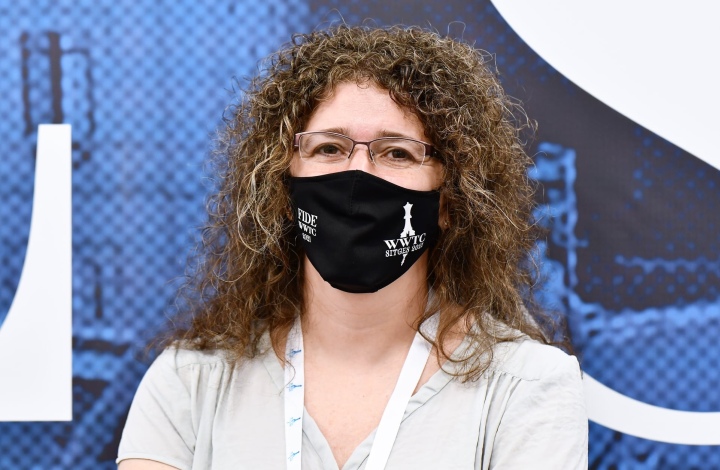
11. What problems as an arbiter (Chief Arbiter) were you facing in last chess event and how did you solve it?
It was a tournament with almost 200 players. The playing area was divided in two, both rooms inside the same hotel, the main one including the top 52 boards, on floor #1. Toilets were outside the playing area separated by an open corridor around 10 meters long.
The country was facing an unusual political situation. Outside the venue, people were being discouraged with tear gas.
At some point, tear gas was so strong that it was not possible to go outside. At least, the insulation of the playing hall was excellent. Players ending their games stayed inside waiting for better conditions.
It was not possible to go to the toilets. Fortunately, it was almost the end of the round and only a few boards were still playing short of time and they had no intention to go to the toilet.
When everything was quiet, we were able to go outside.
12. In conclusion, you are the Chair of the Qualification Commission, briefly share with us the experience or relationship that you have with ARB Commission.
The work in the Qualification Commission is very interesting and it gives me a lot of satisfaction. It allows me to be in communication with people all over the world.
The relationship with the ARB Commission is excellent. I believe the cooperation between ARB and QC is even easier as I am an arbiter and I can understand the procedures.
When QC decides not to rate a tournament, we submit the report to ARB. Sometimes action is needed from the Arbiters Commission Disciplinary Subcommittee in case of misconduct from the arbiters’ side.
Ivan Syrovy and Nebojsa Baralic have demonstrated efficiency and professionalism over the years. They know that I am ready to help the Arbiters Commission in anything I would be asked. We share the same passion and we are working for the same principles.
Prepared by IA Chanda Nsakanya
